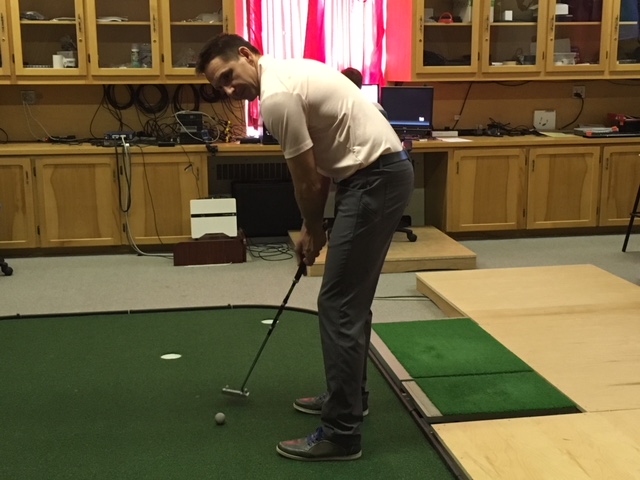Sasho Mackenzie has nothing against tradition.

But as a scratch golfer, and sports professor at Nova Scotia’s St. Francis Xavier University, MacKenzie doesn’t like old ways standing in the way of progress.
“There are a lot of uncovered ideas that haven’t been explored, simply because people aren’t willing to try them,” he said, explaining his theory that could undo 500 years of conventional golf wisdom.
It seems simple: instead of looking at the golf ball with their heads down at the moment of contact, golfers would look at a target near the hole with their heads up.
WATCH: Research shows banking sleep could help athletes go the extra mile

MacKenzie designed an indoor putting lab at the university to test his theory.
He invited 28 golfers to use a putter, outfitted with sensors, and captured results with hi-tech cameras that tracked the sensors on a computer screen.

Get daily National news
“Putting heads up turned out to be much more beneficial for the average golfer, with just a little bit of practice,” he said.
The average improvement was three per cent: about a stroke per round. It’s a small margin that could make a big difference in close tournaments.
Dave Deluzio, golf director at MacKenzie’s home course in Antigonish N.S., says the findings are an important new entry in the growing field of sport science.
“We’re seeing people become better at the game, enjoy it more, through research that Sasho and other players do,” he said.
Members at MacKenzie’s home course are converting.
READ: Accomplished golf coach opens high-profile teaching academy in Calgary
Some top golfers, including world fourth-ranked Jordan Speith, have adopted the heads-up method.
His findings have been peer-reviewed and published in the International Journal of Golf Science.
But other professionals are resisting change, despite MacKenzie meeting with several putting coaches for players on the Professional Golf Association tour.
“I think it’s certainly the pack mentality. Golf is very traditional. You can see how tough it is to change rules. People just like to do things the way they’ve been done. And with putting, it requires a ton of putts to tell if you’re better one way or the other,” MacKenzie said.
He suggests all golfers — from professionals to weekend duffers — should try the heads-up technique and see for themselves if it’s truly a gamechanger.




Comments